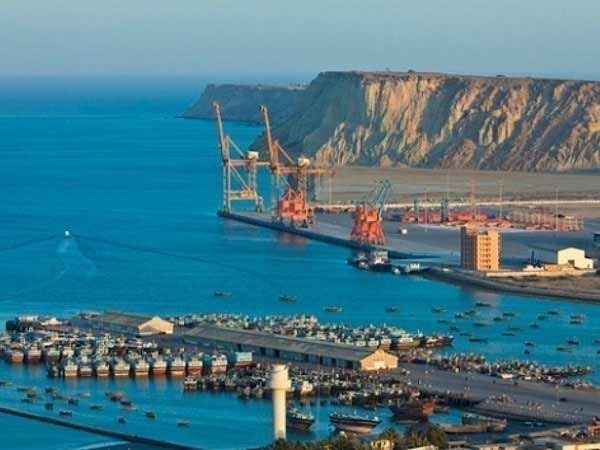Almost ten years after the inception of China’s ambitious Belt & Road Initiative (BRI), London- based NGO The Democracy Forum invited a panel of experts to an August 25 virtual seminar to discuss the gains and costs of this global project.
While it has improved connectivity, expanded trade and opened up international cooperation in areas such as science and technology, there are also concerns over ‘debt traps’ and environmental destruction, leading panellists to tackle the central question: ‘Has the BRI lost its lustre?’
The event’s moderator Humphrey Hawksley, an author and former BBC Asia Editor, said the Belt & Road Initiative had captured China’s vision to step in where Western democracies had not, and build infrastructure that so many countries needed in order to develop. Although this dream seemed to embrace a golden era with China, what has unfolded in nations such as Sri Lanka, Nicaragua and the Solomon Islands has, arguably, turned out to be more complicated, acrimonious and political, and drowned in debt and social unrest.
While there is little doubt that, during its lifetime, the BRI has become the largest transnational infrastructure programme ever undertaken by a single country, said the Forum’s President Lord Bruce, in recent years evidence is mounting to show that China is actually facing its first overseas debt crisis as a consequence of the projects it has funded, with loans issued in recent years turning bad at an unprecedented rate.
He pointed to abundant evidence showing that many of the programmes currently supported by the BRI are facing major implementation problems, and quoted German Chancellor Olaf Scholz’s recent claim that ‘the next major debt crisis in the global south will stem from loans that China has granted worldwide’.
This unprecedented and widespread debt pressure facing China, added Lord Bruce, is fast turning into the country’s biggest challenge of economic statecraft, and it remains to be seen whether Beijing can engage with developing countries beyond relationships built on financial resources and diplomatic capital.
Based on her recent research pertaining to the Global Security Initiative (GSI) and Global Development Initiative (GDI), Claire Chu, a Senior China Analyst at Janes Group, considered how the Belt and Road Initiative has, she believed, served its intended purpose and continues to evolve both functionally and rhetorically, despite its indisputable systemic flaws, including implementation delays, financial mismanagement and corruption.
Chu examined how the infrastructure has been financed and constructed, how China has expanded its global presence through the BRI, how Chinese personnel and assets have been deployed overseas, bilateral relationships have been nurtured and strengthened, and Chinese companies’ market presence has become entrenched.
So the project, she argued, isn’t necessarily declining or going away, and China doesn’t need branding or publicity, although it now has to secure its strategic benefits, as China changes its hype in an attempt to become less threatening and more development-orientated. On issues such as environmental concerns, however, Chu cited cases of China using force to dispel protestors, so this is an area where partner interests, Chinese interests and environmental concerns clash.
China’s Belt & Road policies and activities in the areas of science, technology and higher education, and how these illustrate broader trends in the international reception of the BRI, was the focus for Dr Ingrid d’Hooghe a Senior Research Associate at the Clingendael Institute’s China Centre.
She spoke of the BRI’s long-term strategic vision, its connection agendas with science & technology, and of policies including the 2016 action plan that consisted of three broad goals: strengthening science & technology collaboration, cultivation of talent and building the supply side of the economy, and cultural collaboration through, for example, Confucius Institutes in BRI nations.
However, there could be wider impacts for the future. With a growing pool of talent trained in China or BRI nations, not in the US or EU, a consequent shortage of skilled labour for the West, especially in the hard sciences, could be a problem. Another risk, said Dr d’Hooghe, is of BRI countries becoming increasingly dependent on China to educate their younger generations, which may reduce their capacity for making policy decisions that run counter to Chinese interests. An additional result is the politicisation of knowledge, science and technology, and the growing apprehension this generates.
Dr Una Alexandra Berzina-Cerenkova, Director of the China Studies Centre at Riga Stradins University, examined the issue through a European lens, looking at how Belt & Road issues impact the EU, particularly the Nordic Baltic region.
She spoke of China’s attempts, through the BRI and earlier projects such as the 16 plus 1, to bridge the gap between itself and Western orientation – bringing together ‘the West and the rest’ – but, although there was enthusiasm initially, it had failed. So in this part of the world, she argued, the Belt & Road had already lost its lustre.
Yet we cannot equate the failure of one of the ‘parcels’ of the BRI with whole project and its future, Berzina-Cerenkova cautioned. Regarding the effect Russia’s war in Ukraine has had on Chinese calculations and the future of the BRI, she said China was ‘too close for comfort’ to Russia.
In closing the event, TDF Chair Barry Gardiner MP drew attention to the key notion of the BRI as a long-term vision; while the project has only been going for a short time, politically China thinks very much in the long-term.
Gardiner also highlighted the key military aspects of the BRI, saying that China is very unlikely to let its interests abroad to be placed in jeopardy, and will therefore develop the military capacity to enforce those claims. From a defence point of view, he said, we have to be savvy to that.

